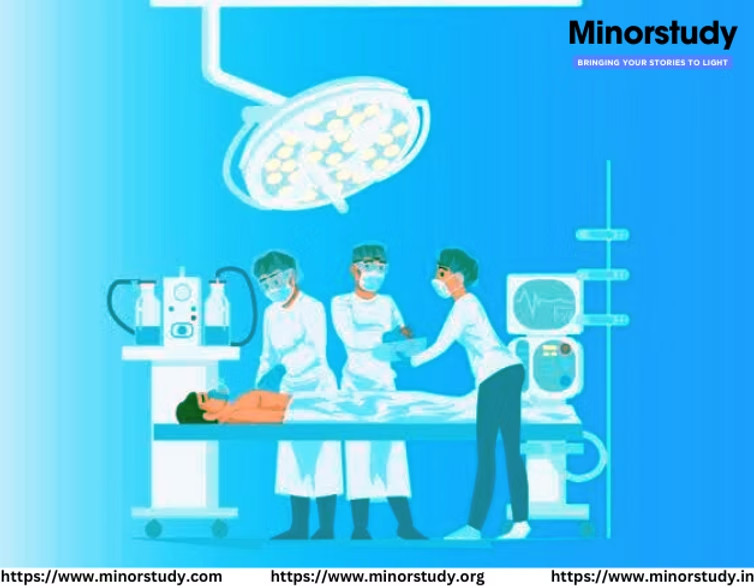Master of Surgery (MS): Overview and Details
Master of Surgery (MS) is a postgraduate degree focused on advanced surgical training and techniques. It equips doctors with the expertise needed to perform complex surgical procedures, manage preoperative and postoperative care, and innovate in the surgical field.
Key Features of MS Program
Duration: 3 years (varies by country).
Eligibility: Must hold an MBBS degree and pass relevant postgraduate entrance exams.
Goal: Develop specialized knowledge, advanced technical skills, and clinical competence in surgery.
Mode: Combines theoretical coursework, practical training, and research.
Core Subjects in MS
Specialization | Description |
General Surgery | Comprehensive knowledge of abdominal, trauma, and vascular surgery. |
Orthopedic Surgery | Focuses on bones, joints, and musculoskeletal system procedures. |
ENT (Otorhinolaryngology) | Treatment of ear, nose, and throat conditions, including surgeries. |
Urology | Surgical care for urinary and male reproductive systems. |
Cardiothoracic Surgery | Surgeries related to heart, lungs, and chest. |
Neurosurgery | Specializes in brain, spinal cord, and nervous system surgeries. |
Plastic Surgery | Focuses on reconstructive and aesthetic procedures. |
Pediatric Surgery | Surgical care specifically for infants and children. |
Gynecological Surgery | Surgeries related to the female reproductive system. |
Oncosurgery | Surgical management of cancer cases. |
Program Structure
Year | Focus Area |
Year 1 | Core surgical principles, anatomy, clinical rotations, and basic surgical skills training. |
Year 2 | Hands-on experience in specialized surgical procedures and pre/postoperative management. |
Year 3 | Advanced techniques, leadership roles in surgical care, and completion of research dissertation. |
Skills Developed During MS
Technical Expertise: Mastery in surgical instruments and techniques.
Clinical Decision-Making: Enhanced ability to diagnose and manage surgical cases.
Research Skills: Emphasis on evidence-based practices and publishing scientific papers.
Team Management: Leadership and coordination in surgical teams.
Assessment in MS Program
Type | Description |
Written Exams | Theoretical knowledge in specialized fields. |
Practical Exams | Assessment of hands-on surgical skills. |
Logbook Submission | Detailed record of surgeries and procedures performed during the course. |
Viva Voce | Oral examination on clinical cases and surgical techniques. |
Research Thesis | Original research work submitted and defended at the end of the program. |
Career Opportunities After MS
Field | Role |
Surgeon | Perform specialized surgeries in hospitals or private clinics. |
Academician | Teach and mentor medical students in universities. |
Researcher | Contribute to surgical advancements and medical innovation. |
Consultant | Work as an expert in multispecialty hospitals or private practice. |
Healthcare Leadership | Lead surgical departments or hospital management teams. |
Global Significance
Master of Surgery graduates are highly sought after worldwide. They contribute significantly to improving patient outcomes, developing innovative surgical techniques, and enhancing healthcare systems globally.
Challenges During MS
Intense Training: Requires dedication and physical stamina.
High Stress: Handling life-critical situations during surgeries.
Financial Burden: High tuition fees and long duration of study.
Motivational Quote
“Surgery is the art of treating disease with hands, guided by knowledge, and perfected with compassion.”
The Master of Surgery is a prestigious and fulfilling program, providing opportunities to save lives, advance surgical science, and inspire innovation in the medical field.








